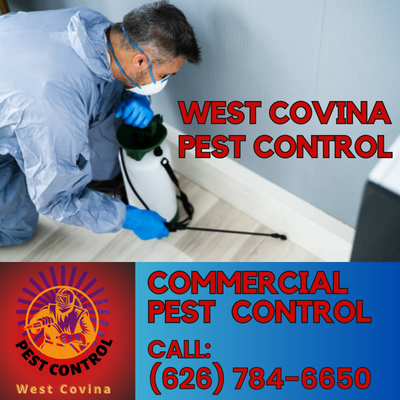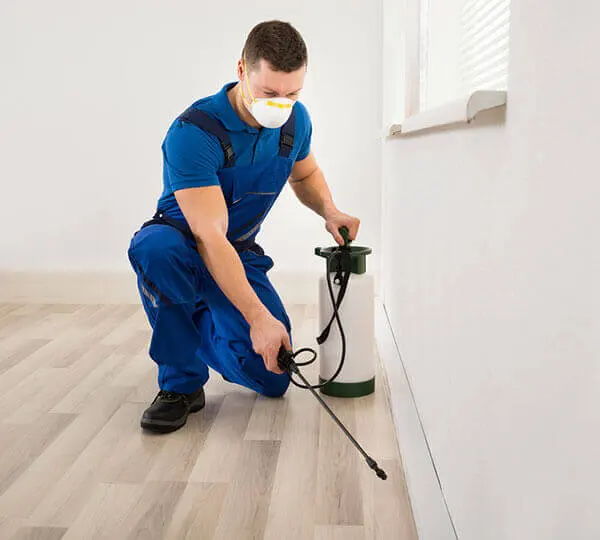Bid Farewell to Vermin: Pest Control Clovis Experts at Your Solution
Bid Farewell to Vermin: Pest Control Clovis Experts at Your Solution
Blog Article
Recognizing the Different Strategies to Insect Control: A Comprehensive Overview

Natural Pest Control Approaches
Employing environmentally friendly techniques such as companion growing and biological insect control is important for successfully managing parasites in farming settings. Buddy growing entails expanding different plants in proximity to hinder parasites, boost nutrient uptake, and enhance overall plant health.
Organic insect control entails introducing all-natural predators or pathogens to manage pest populations. Ladybugs, for instance, feed upon aphids, controlling their numbers without the demand for chemical pesticides. One more example is the usage of Bacillus thuringiensis (Bt), a germs that targets specific insect bugs while being harmless to people, pets, and helpful insects.
These environment-friendly methods not only lower the reliance on artificial chemicals but likewise aid preserve biodiversity and dirt health and wellness. By including natural insect control approaches into agricultural techniques, farmers can achieve lasting insect monitoring while reducing unfavorable influences on the environment.

Chemical Pest Control Solutions
In addition to natural bug control approaches, the utilization of chemical pest control services plays a substantial duty in properly managing pest populations in agricultural atmospheres. Chemical bug control options are created to target details pests that may cause substantial damages to plants. These options usually have artificial pesticides that are designed to get rid of pests quickly and efficiently.
Among the vital benefits of chemical bug control options is their efficiency in managing bug invasions on a big scale. Farmers can apply these remedies making use of different techniques such as spraying, fumigation, or seed therapy to shield their crops from hazardous insects, weeds, and conditions. In addition, chemical bug control services are relatively very easy to use and can offer rapid outcomes, aiding farmers secure their yields and minimize financial losses.
Nonetheless, it is necessary to utilize chemical insect control services carefully to reduce prospective negative impacts on the atmosphere, non-target microorganisms, and human health and wellness. Correct application strategies, adherence to security guidelines, and normal monitoring are crucial to make sure the responsible use of chemical bug control services in farming techniques.
Biological Bug Control Approaches
Biological insect control approaches take advantage of all-natural killers or virus to take care of parasite populaces in farming setups successfully. One usual organic control approach is the intro of all-natural adversaries, such as ladybugs or parasitical wasps, to target details parasites.
One more organic control approach includes using virus like infections, bacteria, or fungis to contaminate and eliminate insects. On the whole, biological parasite control methods provide a sustainable and targeted solution to pest management in farming.
Integrated Insect Monitoring (IPM)
Integrated Pest Administration (IPM) is an extensive technique that combines different parasite control methods to properly manage and lessen pest populaces in agricultural systems. IPM focuses on long-lasting avoidance of pests with a mix of organic, cultural, physical, and chemical control methods. By integrating these various strategies, IPM aims to decrease reliance on chemical pesticides, lessen ecological influence, and promote sustainable bug monitoring techniques.
One key aspect of IPM is the use of biological controls such as natural predators, bloodsuckers, and microorganisms to manage insect populations. This technique uses the power of nature to keep an equilibrium in between parasites and their all-natural enemies without causing harm to the setting.
In addition, IPM entails social techniques like plant cleanliness, habitat, and rotation control to create undesirable conditions for pests and interrupt their life process. Physical controls such as mulches, barriers, and catches are additionally used to avoid insect invasions.
Physical and mechanical Insect Control Techniques
Making use of non-chemical approaches, such as mechanical and physical pest control strategies, is a vital element of extensive bug administration strategies, building on the structure of Integrated Pest Monitoring's alternative approach. Mechanical pest control entails the usage of physical obstacles or traps to stop insects from accessing and damaging plants or structures. This technique can include strategies like installing displays on windows, using row covers in agriculture, or using sticky traps to capture insects.
Physical bug control methods, on the various other hand, focus on straight eliminating bugs via physical ways. As an example, utilizing warmth treatments to remove bed bugs or vacuuming up bugs like spiders or ants can be reliable ways to manage invasions without using chemicals. By integrating these mechanical and physical bug control strategies into an Integrated Insect Monitoring strategy, individuals and experts can minimize dependence on chemicals while still efficiently reducing and handling pest populaces damages.
Conclusion

In enhancement to natural parasite control techniques, the utilization of chemical parasite control services plays a significant duty in efficiently taking care of pest populaces in farming settings.One of the crucial benefits of chemical parasite control services is their efficiency in regulating pest problems on a large range.Integrated Parasite Administration (IPM) is a thorough method that combines numerous insect control approaches to efficiently take care of and minimize pest populations in farming systems.Making use of non-chemical techniques, such as physical and mechanical insect control strategies, is an important facet of comprehensive bug monitoring strategies, developing upon the structure of Integrated Bug Management's holistic technique. click to read By including these click here for info mechanical and physical pest control methods right into an Integrated Insect Management plan, specialists and people can reduce reliance on pesticides while still efficiently minimizing and managing pest populations damage.
Report this page